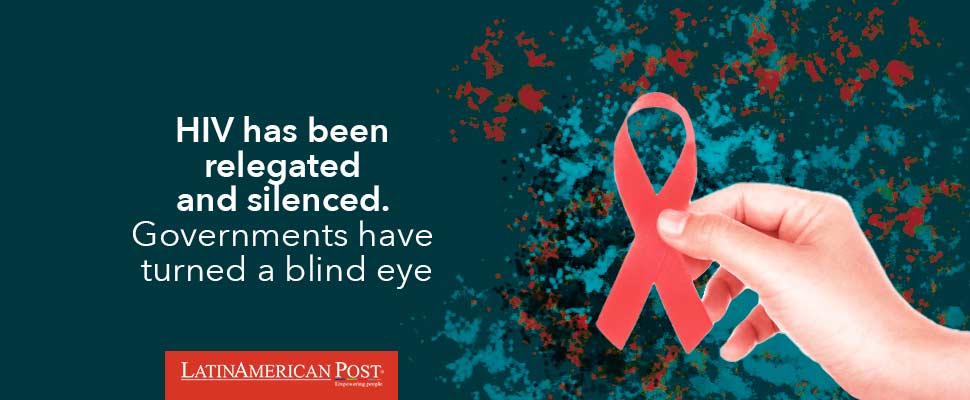Opinion: To Figh HIV / AIDS, We Need To End Inequalities
Today we remember that to put an end to HIV / AIDS it is necessary to change the paradigm that has sustained this pandemic for decades: inequality.

HIV has been relegated and silenced. Governments have turned a blind eye. Photo: LatinAmerican Post
LatinAmerican Post | Vanesa López Romero
Escucha este artículo
Leer en español: Opinión: Para poner fin al VIH/Sida se deberá poner fin a las desigualdades
After almost 5 decades since it began, the world has not been able to eradicate HIV / AIDS, but why? When we talk about HIV / AIDS, we tend to classify it as a sexually transmitted disease (STD) and, based on that, we make judgments. It is forgotten that like, for example, the Coronavirus, it is a pandemic. But unlike COVID-19, being a sexual disease, HIV has been relegated and it is a pandemic that has been silenced and that governments have turned a blind eye to puritanical ideas towards sexuality, drug use and the communities that have been most affected: LGBTI + and IDUs (injection drug users). However, today we see that both pandemics have been approached worldwide with an inequality approach, which causes that in one there is no security and well-being for its victims, and that it is socially relegated; and that in the other poor countries are not financed to accelerate vaccination processes.
Also read: Opinion: Two Different Ways of Tackling a Pandemic, the case of HIV and COVID-19
Inequality as the greatest enemy
Our species is afraid of what is different. Processes such as colonization, segregation, the war on drugs, homophobia and transphobia demonstrate this. These processes have been carried out from spheres of power made up of white and wealthy men who relegate other communities socially, politically and economically for not fulfilling a duty to be rooted in a thought directly related to Christianity. This generates an inequality gap that grows to the extent that a person is part of one of these communities or is categorized in the relegated sectors.
In the case of HIV / AIDS, this has resulted in: 110 million infected people and the death of 47.8 million of these since the global epidemic began to take shape in the early 1970s. Likewise, this has caused high political spheres to ignore this public health problem and funding for research has been very little, causing the process of finding a cure and improving the living conditions of those living with HIV to be slow.
Until this year, clinical trials began for phase 3 of a vaccine that could end this epidemic. It is worth noting that, unlike COVID-19, HIV is a retrovirus and hides within humans in such a way that the immune system cannot identify it, which has made the search for the solution a little more clumsy endeavour.
Every December 1, in commemoration of both living and deceased victims, World AIDS Day is celebrated. This year, the slogan for the celebration reads: "End inequalities. End AIDS. End pandemics." Seeing the panorama that is presented to us today by the COVID-19 pandemic and the response that governments have had towards the African continent due to the outbreak of the Omicron variant due to the very low vaccination rate, it is more than clear that inequalities do they can jeopardize the solution of this type of event.
As long as HIV / AIDS is not understood as a public health problem and efforts are made at the political level to make victims visible without judging them by the way in which they may or may not have been infected, the pandemic cannot be ended.




